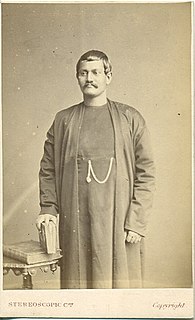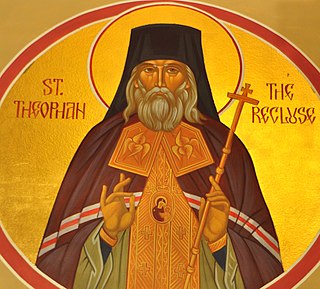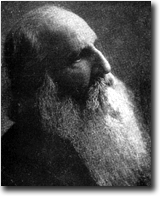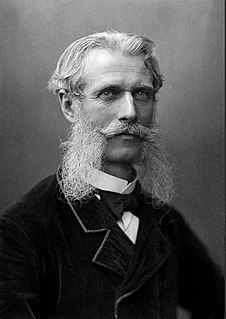A Quote by Henri Frederic Amiel
Religion is not a method, it is a life, a higher and supernatural life, mystical in its root and practical in its fruits; a communion with God, a calm and deep enthusiasm, a love which radiates, a force which acts, a happiness which overflows.
Related Quotes
I have never, in all my life, not for one moment, been tempted toward religion of any kind. The fact is that I feel no spiritual void. I have my philosophy of life, which does not include any aspect of the supernatural and which I find totally satisfying. I am, in short, a rationalist and believe only that which reason tells me is so.
Religions, creeds and forms are only a characteristic outward sign of the spiritual impulsion and religion itself is the intensive action by which it tries to find its inward force. Its expansive movement comes in the thought which it throws out on life, the ideals which open up new horizons and which the intellect accepts and life labours to assimilate.
The truths which are represented in England and Western countries generally, are those which refer to force of character, earnestness of purpose, conscientious strictness, noble charity, practical duty, whilst the truths which I find peculiarly developed in India - developed to a greater extent than anywhere else, - and in the Eastern countries generally, are those which have reference to sweetness of communion, sweetness of temper, meekness and resignation unto God.
The happiness which God designs for His higher creatures is the happiness of being freely, voluntarily united to Him and to each other in an ecstasy of love and delight compared with which the most rapturous love between a man and a woman on this earth is mere milk and water. And for that they must be free.
Which was first, Matter or Force? If we think on this question, we shall find that we are unable to conceive of matter without force, or force without matter. When God created the elements of which the earth is composed, He created certain wondrous forces, which are set free and become evident when matter acts on matter.
The doctrines of Jesus are simple and tend all to the happiness of man, that there is only one God and God is perfect. That God and man are one. That to love God with all your heart, and your neighbor as yourself, is the sum of religion. These are the great points on which I endeavor to reform and live my life.
But it is doubtless true, and evident from [the] Scriptures, that the essence of all true religion lies in holy love; and that in this divine affection, and an habitual disposition to it, and that light which is the foundation of it, and those things which are the fruits of it, consists the whole of religion.
Deep in the soul, below pain, below all the distraction of life, is a silence vast and grand - an infinite ocean of calm, which nothing can disturb; Nature's own exceeding peace, which "passes understanding". That which we seek with passionate longing, here and there, upward and outward; we find at last within ourselves.
The paths by which people journey toward happiness lie in part through the world about them and in part through the experience of their souls. On the one hand, there is the happiness which comes from wealth, honor, the enjoyment of life, from health, culture, science, or art; and, on the other hand, there is the happiness which is to be found in a good conscience, in virtue, work, philanthropy, religion, devotion to great ideas and great deeds.
Religion, as distinguished from modern paganism, implies a life in conformity with nature. It may be observed that the natural life and the supernatural life have a conformity to each other which neither has with the mechanistic life...A wrong attitude towards nature implies, somewhere, a wrong attitude towards God...[We should] struggle to recover the sense of relation to nature and to God.









































